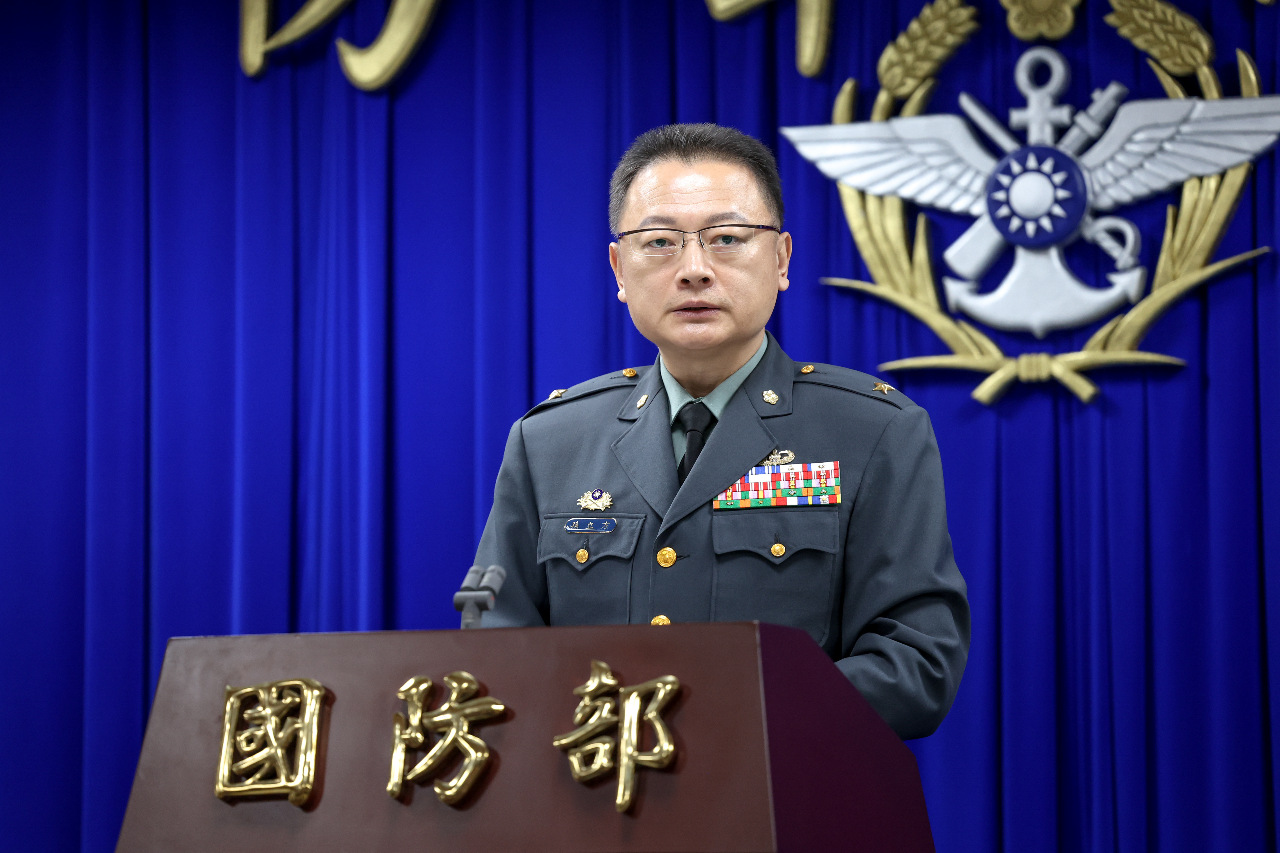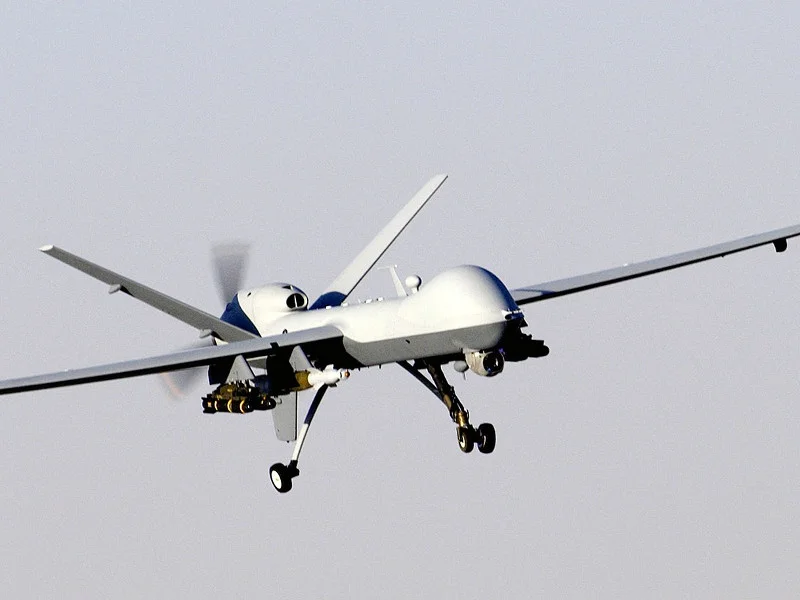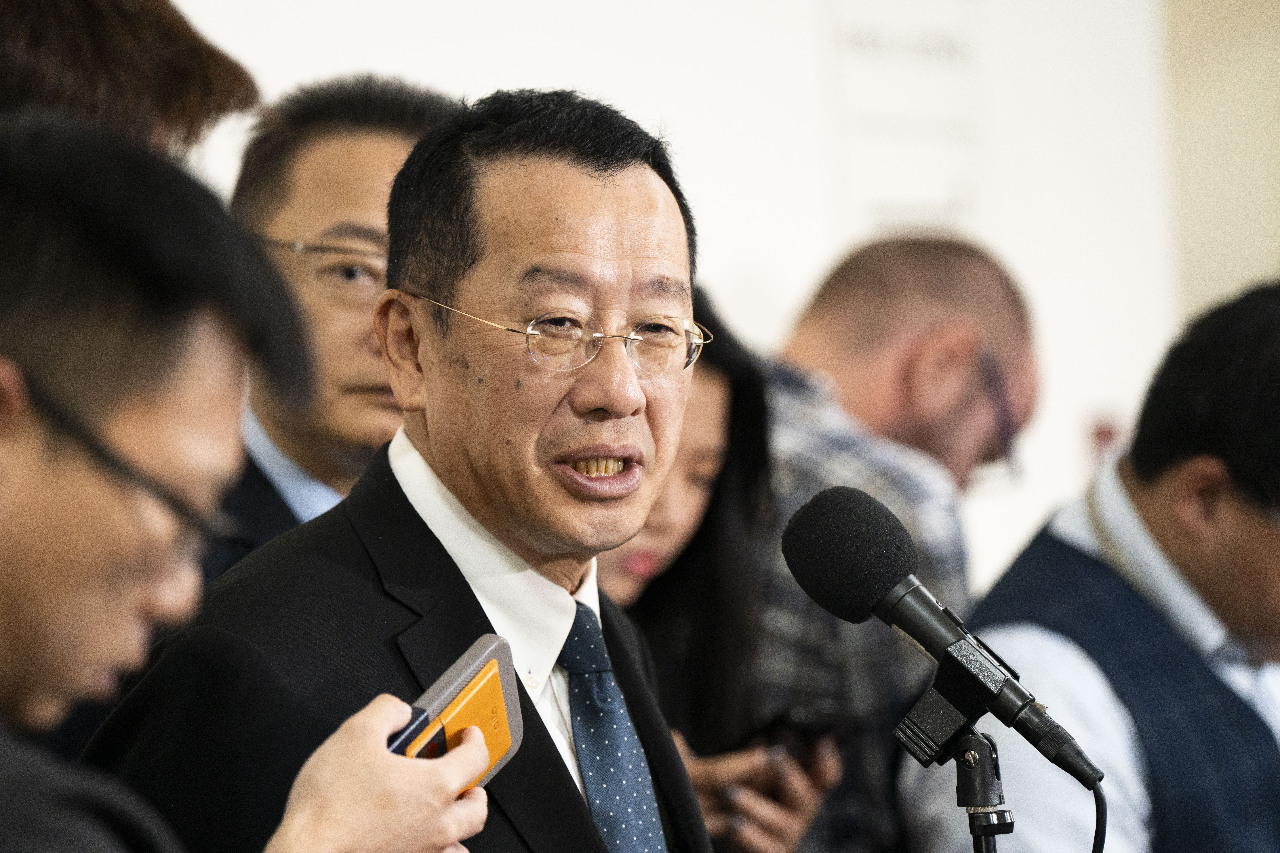In order to ensure the safety of the barracks, military exercises and combat readiness, the Taiwan’s Ministry of National Defense (MND) has promoted the “draft regulations and orders supporting the regulations on the security maintenance of military barracks”, and will officially announce them on the Internet on 10/09. The MND stressed that the relevant supporting regulations are to regulate the content of the parent law in detail, including how to define military sensitive places and the scope of exercises and training, so as to not only meet the needs of military security, but also reduce the impact on people’s lives.
The MND said on 10/09 , accordinng to the principle of ruling the army by law and the requirements of the national defense legalization, the MND has promoted the security maintenance of military barracks since 2019 and announced it in January 2024. The MND will also revise the supporting orders in accordance with relevant laws and regulations, and after being approved by the Executive Yuan, it will be announced online at 5 p.m. on 10/09 on the internet platforms such as “join.gov.tw” and the Ministry of National Defense Global Information Network.
The “Draft of the Supporting Regulations for the Safety Maintenance of Military Barracks” consists of seven supporting laws and regulations, including the “Measures for Notification of Exercise and Training Sites”, “Types of Weapons and Equipment Equipped for Security Services”, “Permitted Items under Paragraph 1 of Article 6 of the Regulations on Security Maintenance”, “Compulsory Eviction or Necessary Measures for Security Inspections”, “Measures for the Implementation of Safety Control”, “Measures for the Organization of Investigation Teams for the Use of Weapons or Equipment”, and “Measures for Compensation for Incidents of Security Service in Enforcement Camps”.
Suen Li-fang (孫立方), the spokesman for the Ministry of National Defense, said that in the future, a 60-day notice period will be used to consolidate the opinions of all parties and include them as a reference for subsequent revisions.
Suen said: “After the expiration of the 60-day notice period, we will make a summary explanation, and then we will prudently make a revision in accordance with the opinions of all walks of life, with the aim of making our executive order meet the needs of military security on the one hand, and reduce the impact on the people’s rights and interests on the other hand.”
Among them, the “Measures for Permitted Matters in Paragraph 1 of Article 6 of the Regulations on the Security Maintenance of Military Barracks” will prohibit espionage and collection of espionage and reconnaissance inside and outside the military barracks or training grounds.
The publics is worried about whether it is illegal for the public to film the land maneuvers of troops, warships docked at the civilian ports, or take off and land military aircraft. According to the Ministry of National Defense, the scope of the prohibition is limited to the barracks or the scope of the exercise and training announced by the specified announcement, and there is no restriction on land or port berths.
As for the take-off and landing of various types of military aircraft, Taiwan’s defense department said that there is no great problem in being alert in filming the take-off and landing of military aircraft, but if it is aimed at the runway, aircraft fort, and other facilities, it will be discussed on a case-by-case basis.
Wang Zheng-yi (王正誼), the director of the Legal and Judicial Discipline Investigation Division, said: “If we think that his shooting involves endangering the safety of the military barracks, of course there will be relevant restrictions, for example, the fighter plane he photographed was parked in the hangar, and he filmed the fighter plane in the hangar to do a photograph, shoot, video, and so on, but if it was really in the take-off and landing stage, in the taxiing stage, this would probably not involve the safety of the military barracks.”
為了確保營區的安全以及推動軍事演訓和戰備任務,台灣國防部推出了「軍事營區安全維護條例配套法規命令草案」,並計劃於今天(10日)正式公告。國防部強調,這些配套法規旨在對母法內容進行詳細規範,包括如何界定軍事機密地點和演訓範圍,既能滿足軍事安全需求,又能減少對民眾生活的影響。
國防部在10日表示,根據依法行政的原則及國防法治化的要求,自2019年起推動「軍事營區安全維護條例」,並計劃於2024年1月公布。隨後,國防部將根據相關法規進行配套命令的修訂,經行政院核准後,將於10日下午5點在「眾開講」及國防部資訊網等平台上公告。
「軍事營區安全維護條例配套法規草案」共包含七項配套法規命令,涵蓋「演訓場域通報辦法」、「安全勤務配備武器及器械種類」、「安全維護條例第六條第一項許可事項」、「安全檢查強制驅離或必要措施」、「安全管束實施辦法」、「武器或器械使用調查小組組織辦法」及「執行營區安全勤務事件補償辦法」等。
國防部發言人孫立方表示,未來將透過60天的預告期收集各方意見,並將其納入後續修訂的參考。孫立方指出:「預告期結束後,我們會進行彙整說明,並根據各界的意見謹慎修訂,目的是希望在滿足軍事安全需求的同時,減少對人民生活權益的影響。」
在「軍事營區安全維護條例第六條第一項許可事項辦法」中,將禁止對軍事營區或訓練場域內外進行攝影、偵察等行為。外界擔心民眾拍攝部隊陸上機動、軍艦停泊民港或軍機起降是否會違法。國防部表示,禁止的範圍僅限於營區內或明確公告的演訓範圍,對於一般的陸上或港泊活動則不受限制。
至於軍機的起降,國防部指出,拍攝軍機起降本身並不涉及太多機密問題,但若針對跑道、機庫等設施拍攝,則會根據具體情況進行處理。法律司法紀調查處處長王正誼表示:「如果拍攝行為涉及危害軍事營區安全,當然會有相關限制。例如,拍攝停在機庫內的戰機,但如果是在起飛或降落階段,則通常不會涉及軍事營區安全問題。」



